Greater Gabbard Offshore Wind Farm has celebrated its 10th anniversary by launching a new five-year fund to help community organisations in Lowestoft and the surrounding area.
The £50,000 Greater Gabbard Community Fund will provide donations of £1,000 to help small constituted local groups near to the Greater Gabbard Offshore Wind Farm operations and maintenance base in Lowestoft. The fund will support community projects which enhance the quality of life for residents and promote community spirit.
The areas eligible to apply for funding from the initiative include Lowestoft, Carlton & Whitton, Carlton Colvillle, Gunton & St Margarets, Harbour & Normanston, Kessingland, Kirkley & Pakefield, Lothingland and Oulton Broad.
The funding decisions will be made by a panel of representatives which includes local businessman John Best. John has a wealth of voluntary sector experience in the local area and is a champion for young people and skills development through both his work as a STEM ambassador, and his role creating intern opportunities for local students.
John said:
“Energy is fundamental to everything we do, whether we work in the industry or are served by the industry.”
“Through energy we are all connected. I am delighted and encouraged by a new programme being launched by Greater Gabbard Offshore Wind Farm to provide funding for local initiatives over the next five years to support and make a difference to individuals and groups within the community.”
Orgsnisations wishing to apply for a grant can do so now by completing a short application form at Greater Gabbard | SSE Renewables
The application deadlines are February 24, June 24 and October 24.
MP for Waveney, Peter Aldous, said:
“I welcome this investment from Greater Gabbard Offshore Wind Farm in Lowestoft and its surrounding communities. This £50,000 commitment comes at a very challenging time for local community organisations and I would urge groups to get their applications in early to see if they can get some support for the excellent work they’re doing for some of the most vulnerable individuals and families in our local area.”
The fund builds on the social impact the wind farm has created in the local area over the last ten years including providing enough green energy to supply 400,000 homes and through the creation of 100 operational jobs, including 10 apprenticeships.
Operations Manager for Greater Gabbard Offshore Wind Limited, Glynn Fereday, said:
“We are proud of the positive difference that Greater Gabbard Offshore Wind Farm has made for the local area providing jobs and generating renewable energy for hundreds of thousands of UK homes and businesses.
“We recognise the significant difference many local community projects make in Lowestoft and we want to ensure we are here to support them by celebrating our milestone with this £50,000 investment.”
Greater Gabbard Offshore Wind Farm is equally owned by SSE Renewables and RWE, who together are also jointly developing an extension to the wind farm called North Falls.
Peter Aldous backs the Finance Bill as the right balance in difficult circumstances and welcomes the protection for the most vulnerable and additional funding for health, social care and education. He urges the Government and oil and gas sectors to work together to ensure no unintended consequences from the energy sector levies.
Peter Aldous (Waveney) (Con)
For a moment, I thought that you had forgotten me, Mr Deputy Speaker, but that is greatly appreciated.
The purpose of the Bill, as the Minister—my fellow Suffolk MP—said at the beginning, is to put on to the statute book many of the tax and spending decisions that the Chancellor announced in his autumn statement, with some others being deferred until the spring Finance Bill in 2023. The Chancellor was confronted with an incredibly difficult challenge on 17 November, so in many respects, he was between a rock and hard place. I genuinely believe that he struck the right balance and delivered the statement that the nation required in these very precarious times. He was right to protect the most vulnerable and to provide additional funding for health and social care and education, although on the latter, I think that he should also have included further education and colleges, which are so important in improving the UK’s productivity and providing the many, not the few, with the opportunity to participate in the proceeds of growth that we are so elusively seeking. That said, the Chancellor has appointed Sir Michael Barber to provide a skills reform programme, and he is to be commended for confirming support for Sizewell C, for providing Suffolk with a devolution deal, and for committing to a step change in the drive to improve the energy efficiency of our existing homes and businesses.
I feel that my right hon. Friend had no alternative other than to introduce levies on oil and gas producers and electricity generators. I will focus much of the remainder of my speech on that issue. There is a need to avoid any unintended consequences in the way that the levies operate, which could deter inward investment, which is so important to ensuring our energy security, meeting our net zero targets that enable us to tackle climate change, and regenerating the economies of many coastal communities, such as the Lowestoft and Waveney constituency that I represent.
Clauses 1 to 3 detail the changes proposed to the oil and gas profits levy: raising the rate of the levy to 35%; reducing the investment allowance from 80% to 29%, although it remains at 80% for investment on upstream decarbonisation; and extending the levy to 2028. That last provision appears somewhat random, because it takes no account of the fact that our current very high gas prices may have fallen by then. We should remember that, only a few years ago, gas prices were on the floor. I hope that, if we are in a different place before 2028, the Government will look at bringing forward the sunset clause.
I note that HMRC’s assessment concludes that the
“changes to the Energy Profits Levy are not expected to have a significant macroeconomic impact on the level of business investment”
and that the impact on business will extend only
“to around 200 companies operating in the UK or on the UK Continental Shelf.”
Those findings are very different from those of Offshore Energies UK, which is the trade representative of many of the businesses affected and which provides the secretariat for the British offshore oil and gas all-party parliamentary group, which I chair. It states that
“the tax changes would impact not just North Sea operators but the hundreds of other companies in their supply chains”,
which are so important to coastal communities such as Lowestoft and which extend right across the UK. It notes that such businesses
“provide specialised services such as marine engineering, deep sea diving or subsea communications”,
which are not just important to the oil and gas sector, but vital to the emerging industries of offshore wind, carbon capture and storage, and hydrogen production.
Offshore Energies UK points out that the industry—private business—
“is participating in plans to invest £200 billion by 2030 across all energies, including the lower-carbon ones needed to drive the energy transition.”
There is a real worry that disruption to the tax system could deter that vital investment. Although the Bill does not cover the electricity generator levy— I welcome the Minister’s commitment to engage with the industry before detailing the Government’s proposals— that levy’s provisions and implications should be considered alongside the energy oil and gas profits levy. That is because today’s renewables and oil and gas industries are inextricably interlinked and intertwined.
There is a real worry in the renewables sector that the electricity generator levy may deter the investment needed to end our reliance on fossil fuels. The companies that will be affected are those to which we are looking for investments of billions to accelerate the renewable energy transition. It is only by attracting such private sector investment that the UK can successfully grow its capacity in renewable energy. To meet our 2030 and 2050 targets, we need to attract more private investment, not deter it.
With that in mind, it is concerning that electricity generators are due to miss out on an investment allowance for new wind projects. If we are to be a global leader in offshore wind, including being a pioneer in floating offshore wind technology, there is a strong case for tax incentives to encourage new investment. That does not mean helping energy firms to avoid tax, but it does mean encouraging them to invest in the UK’s clean future for the benefit of the environment, of our future prosperity and of our energy security.
There needs to be a windfall tax, but it must be introduced in a form that is predictable, transparent and fair so as not to undermine investor confidence. I fully recognise that the enormous cost of shielding people and businesses from the worst impacts of the gas crisis requires a windfall tax, but there is a concern that the current and updated proposals for the oil and gas levy and the emerging plans for the electricity generator levy may, or might, have the unintended consequence of deterring investment at a time when we urgently need it, with a negative impact on the key policies of energy security, combating climate change, and levelling up.
It is good news that the Government have undertaken to carry out a long-term review of the tax treatment of UK oil and gas production. I also ask them to keep the oil and gas profits levy in place only while there is a windfall, rather than until 31 March 2028 if present conditions do not continue until then. There is much work to be done to create the stable, long-term fiscal environment required to maximise inward investment. Moving to net zero is a monumental challenge; the state of the public finances is such that we need more than ever to unlock private finance if we are to meet our targets.
Government and business must work together to put in place the long-term, stable tax regime that will ensure that companies make a full but fair contribution. Until recently, Government and business were working well together and a clear industrial strategy was in place, culminating in the 2019 offshore wind sector deal and the 2021 North sea transition deal. There is an urgent need for the Government and the energy industry to renew their marriage vows. I urge my right hon. Friend the Chancellor and his very good team on the Front Bench to set about the task immediately.
This Black Friday Peter Aldous supports calls for a Fashion Watchdog to put an end to fashion’s unfair purchasing practices.
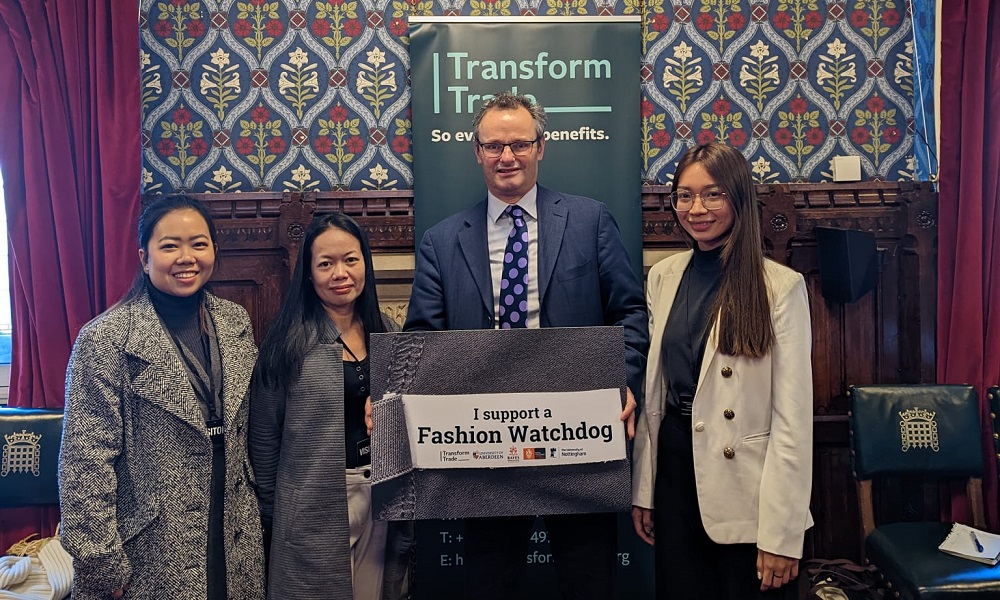
Peter said:
“Black Friday is a good opportunity to remember that when fashion brands engage in unfair purchasing practices, businesses and workers suffer. I’m supporting the call for a Garment Trade Adjudicator, or Fashion Watchdog, to replicate for fashion the great work that the UKGCA does in protecting suppliers and workers in the food sector.”
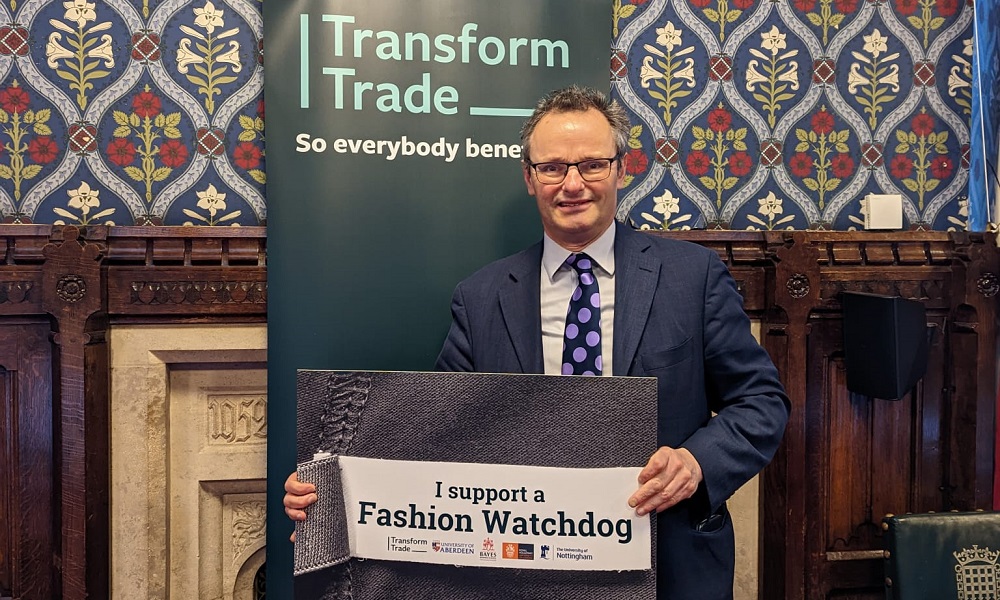
Peter Aldous attended a drop-in event in Parliament with Restitute CIC who provide practical support to third party victims of violent or sexual crime across Norfolk and Suffolk.
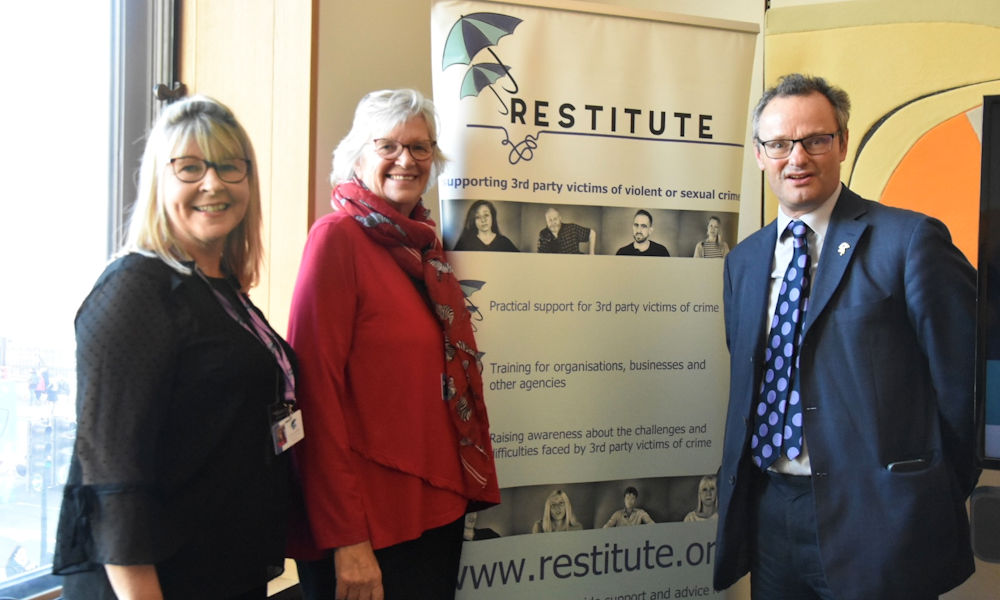
Restitute CIC is a lived experience organisation that supports third party victims of crime – the parents, carers, partners siblings and loved ones of people who have survived sexual abuse, sexual violence or other serious violence including domestic violence.
Their service delivers:
- Early intervention for carers and parents aimed reducing the risk of drug and alcohol issues, homeless, poor mental health, domestic violence, poor physical health, sexual and criminal exploitation, prison and early death for their loved ones.
- Support for carers reducing the risk of poverty, unemployment, poor mental and physical health, poor educational outcomes for siblings and family breakdown
- Reduction in financial costs to health, mental health, social care services, police, housing, welfare benefits, education further downstream.
For more information:
http://restitute.org
support@restitute.org
07946 557819
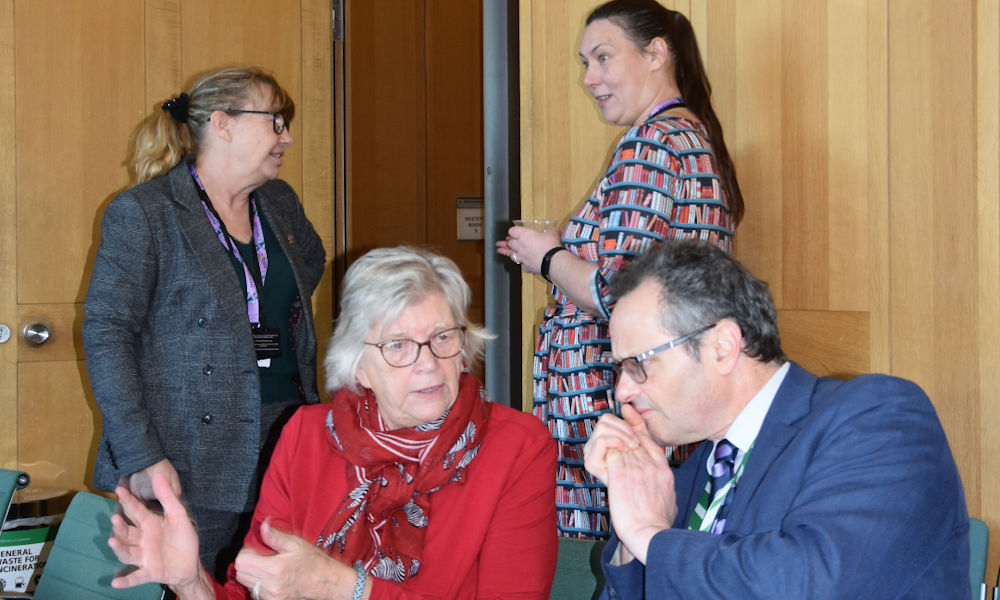
Peter Aldous today signed a new manifesto, outlining ways the government can clean up the UK's rivers, seas, and waterways, including a new fund that could support local initiatives in Waveney to tackle pollution using money raised by fining polluting water firms.
“The government has toughened up fines against polluting water firms, but we need to reinvest this money in local initiatives to restore our rivers and seas.”
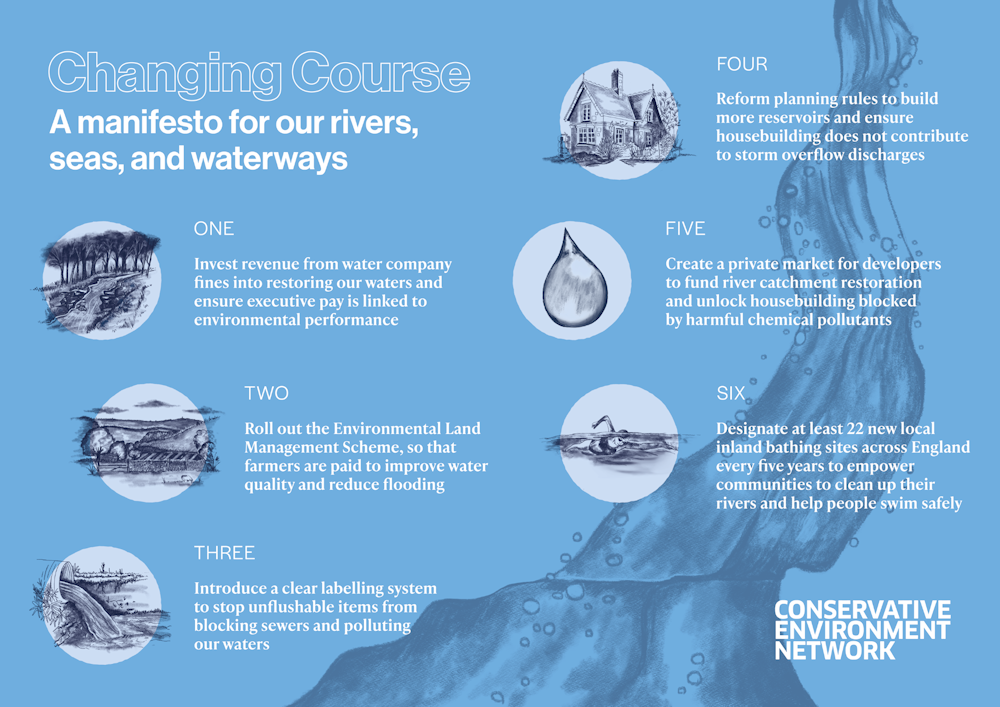
The manifesto, organised by members of the Conservative Environment Network’s Parliamentary Caucus, calls for all money raised from fines handed out by the Environment Agency (EA) to be allocated to a new government fund or given to a third party like the National Lottery Heritage which local groups, organisations and farmers could apply for to keep our local waterways clean.
If the government had spent the money raised by water company fines since 2017, over £140 million could have been invested in local initiatives. Now that the government has committed to lift the cap on civil fines - the most common penalty - the EA will likely raise more revenue from fines, unlocking millions more for restoring waterways.
The manifesto, signed by Peter Aldous MP together with 40 Conservative MPs and peers, also calls for the government to:
- Introduce a clear labelling system to stop people from flushing items like wet wipes, sanitary products and nappies that contribute to 300,000 sewer blockages a year, polluting our rivers and seas and costing bill payers £100 million annually to clear.
- Designate at least 22 new river bathing water sites across England every five years, replicating the success of the coastal system, which spurred efforts to clean up our seas. In 1990, only 28 per cent of coastal bathing water sites met that time's high standard. Today, 93 per cent of the 400 sites are good or excellent.
- Roll out the Environmental Land Management scheme, which will pay farmers to restore waterways and tackle flooding, and deploy sustainable farming methods reducing runoff from agriculture responsible for 40 per cent of damage to waterways.
- Reform planning rules to build more reservoirs, fast-track on-farm reservoirs and slurry stores, set minimum water efficiency standards to tackle wasted water, make water firms statutory consultees on planning applications, and require new homes to have sustainable drainage.
- Reform nutrient neutrality requirements to unlock the 120,000 new homes currently blocked across 74 local authority areas by creating a private market for developers to fund river catchment restoration to enable existing polluters to adopt cleaner practices.
The Conservative Environment Network says the proposals will accelerate the government's efforts to tackle water pollution, strengthen the UK's water security, and empower communities with new bathing water sites and funds to restore rivers locally.
Peter commented:
“Our rivers and seas bring nature into our towns and cities, create spaces for recreation and help make our communities more beautiful places to live. But pollution too often stops people enjoying these community assets.
“There are no quick fixes; our Victorian sewerage infrastructure is ageing and not designed to cope with today’s demand. But there’s far more we can do to clean up our rivers and seas, and I’m pleased to support the practical proposals in this manifesto which will accelerate our progress toward resolving these long-term challenges.”“The government has toughened up fines against polluting water firms, but we need to reinvest this money in local initiatives to restore our rivers and seas. Creating a new fund using the millions of pounds raised from these fines would enable local groups, organisations and farmers to bid for cash to improve our waterways so they are kept clean and more people can enjoy them.”
Sam Hall, Director of the Conservative Environment Network, commented:
“England’s rivers are in a poor state. These problems have built up over decades due to underinvestment, poor planning, and patchy enforcement of the law. With public concern about rivers greater than ever, we need pragmatic, long-term solutions to protect and restore these critical natural assets.
“I am delighted that Peter has signed this manifesto which builds on the positive steps taken by the government recently to clean up our rivers and improve water security, and I pay tribute to their environmental campaigning. Backed by dozens of Conservative MPs, it sets out a comprehensive plan to address the principal pressures on the water environment.”
Peter Aldous writes for the New Statesman.
To balanced the nation’s books, the Chancellor needs to accelerate efforts to reach net zero.
One thing above all else is driving Britain’s economic woes: our heavy reliance on gas for electricity and home heating. That is why energy prices have soared following Vladimir Putin’s invasion of Ukraine, pushing up inflation and public debt and leaving our economy languishing.
If Jeremy Hunt, the Chancellor, is going to be successful in balancing the nation’s books and growing our economy, he needs to accelerate our efforts to reach net-zero greenhouse gas emissions. For all the belt-tightening and public spending pressures, the Autumn Statement rightfully puts clean energy and insulation at the heart of the government’s economic plans.
It is no small thing that the Chancellor used his statement to reaffirm the UK’s commitment to the Glasgow Climate Pact. With countries looking to the UK’s example at Cop27, the UN climate conference, and some siren voices at home calling for net zero to be delayed, Hunt sent a clear message by reiterating that the UK’s target is for a 68 per cent reduction in emissions by the end of the decade.
Since 1990 we’ve grown our economy by 78 per cent while cutting our emissions by 44 per cent, proving to other nations that clean growth is not only possible but increasingly represents the only route to prosperity. With the UK now in recession, thanks to an energy crisis inflicted on us by Russia, the clearest path back to prosperity is through cheap and clean renewable energy, new nuclear and energy efficiency.
Underpinning the statement’s message about the UK’s continued climate leadership are bold commitments: a target to reduce energy consumption by 15 per cent by 2030, confirmation of our first state-backed nuclear power station in thirty years, and a further £6bn of funding for insulation.
The Sizewell C announcement is excellent news for the east of England. It ends the dither and delay around the building of low-carbon nuclear power and unlocks a project that will create ten thousand skilled jobs and power six million homes. Even with the nation’s finances stretched, this decision shows the UK is rejecting short-term thinking when tackling climate change and strengthening our energy security.
A sustained focus on energy efficiency and reducing waste is well overdue; for too long it’s been the weak link in the UK’s net-zero and energy security strategies. Nearly 19 million British homes are poorly insulated, contributing to climate change and leaving people with more expensive energy bills. Solving this problem will be crucial for us in reaching net zero and will permanently cut people’s energy costs.
The challenge of upgrading the UK’s housing stock is enormous. To meet the Chancellor’s target, the new energy efficiency taskforce must look beyond grants to insulate fuel-poor homes and assess more creative incentives such as energy-saving stamp duty and low-cost loans. These could be designed to be revenue neutral, not costing the Exchequer anything but boosting insulation rates among homeowners.
Given the tremendous cost of shielding people and businesses from the gas crisis – the equivalent of paying for a second NHS – a windfall tax on energy firms is understandable. Oil, gas and indeed some renewable companies are earning tremendous profits as wholesale energy prices rocket. Temporary windfall taxes can help us pay for policies to protect people from these high prices.
However, the Chancellor’s inclusion of renewables in the new tax may deter the investment we need to end our reliance on fossil fuels. These are the same companies we hope will invest billions of pounds in accelerating the renewable energy transition, powering the UK with cheap energy. Only through attracting private investment has the UK successfully grown its capacity in renewable energy – which now provides around 40 per cent of our electricity compared to 7 per cent in 2010 – and driven down its cost.
To meet the government’s ambitious targets we need to attract more private investment and not deter it through inflexible windfall taxes. That is why it is concerning to see electricity generators missing out on an investment allowance for new wind and solar projects.
Nonetheless, while the windfall tax is an area of concern, the Chancellor’s statement represents a big step in the right direction. In the wake of the war in Ukraine, any credible government plan to balance the books must prioritise renewables and insulation. We can only overcome these challenges with the dynamism of British industry and our country’s vast wind power potential.
If we are going to be a global leader in offshore wind power and a pioneer of floating offshore wind technology, there is a strong case for tax incentives to encourage new investment. It doesn’t mean helping energy firms avoid tax, but it does mean encouraging them to invest in our country’s clean future for the sake of our planet, future prosperity and energy security.
Peter Aldous welcomes the Chancellor’s Autumn Statement and calls on the Government to support the Lowestoft port investment zone application as a centre of excellence for low-carbon industry.
Peter Aldous (Waveney) (Con)
I congratulate my right hon. Friend on his statement. I welcome the protection that he has announced for the most vulnerable, Government support for Sizewell C, the announcement of a devolution deal for Suffolk, the appointment of Sir Michael Barber to prepare a skills reform programme so that the many and not the few can participate in the proceeds of growth, and the Chancellor’s commitment to a step change in the UK’s efficiency programme. May I highlight the enormous potential that the Lowestoft port investment zone can play as a centre of excellence for low-carbon industry, and urge him to give full consideration to the proposal that will be forthcoming ahead of the March Budget?
The Chancellor of the Exchequer (Jeremy Hunt)
My hon. Friend is a formidable advocate for Lowestoft and the Lowestoft port investment zone. The process for deciding where the investment zones are will be decided by the Secretary of State for Levelling Up, Housing and Communities, but I will pass on my hon. Friend’s comments to him.
Peter Aldous welcomes Government engagement with local fishermen in producing the bass fisheries management plan and seeks confirmation that the management plan accords with the trade and co-operation agreement, and will also apply to EU vessels.
Fishing Communities
Peter Aldous (Waveney) (Con)
9. What steps she is taking with Cabinet colleagues to support fishing communities. [R] (902211)
The Minister of State, Department for Environment, Food and Rural Affairs (Mark Spencer)
The Government are providing £32.7 million a year to enable all four fishing Administrations to deliver funding schemes to support the seafood sector, such as the fisheries and seafood scheme in England. In addition to that, £100 million is being provided through the UK’s seafood fund to support the long-term future and sustainability of the industry, helping to bring economic growth to coastal communities and supporting levelling up.
Peter Aldous
I am grateful to my right hon. Friend for that answer. I draw attention to my role chairing Renaissance of the East Anglian Fisheries, a community interest company promoting the fishing industry in East Anglia. It is welcome that policy labs in the Cabinet Office are engaging with local fishermen in producing the bass fisheries management plan, and a REAF director recently attended a workshop in Lowestoft. Can my right hon. Friend confirm that he is also liaising with the Department for International Trade to confirm that the management plan accords with the trade and co-operation agreement, and will also apply to EU vessels?
Mark Spencer
I pay tribute to my hon. Friend for his tenacious campaigning on this topic. The bass fisheries management plan will manage bass fishing in England and Wales. We are delivering on our commitments in the Fisheries Act 2020. The fisheries management plan will apply to all vessels fishing in these waters, and the Fisheries Act 2020 requires consultation with all interested persons. Our fisheries management plans will comply with the UK’s international obligations, including the trade and co-operation agreement.
